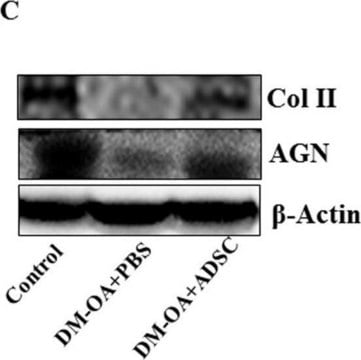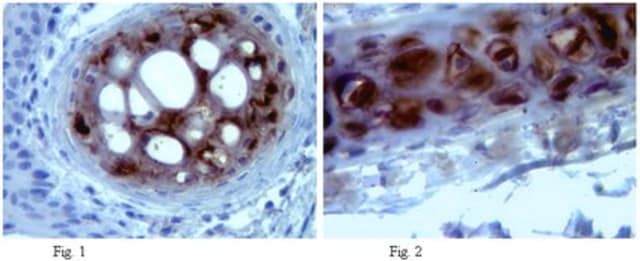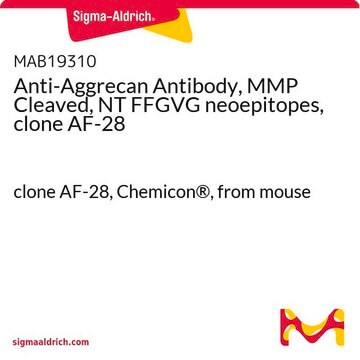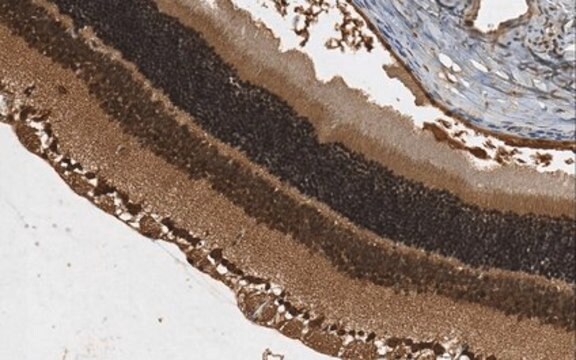SAB4500662
Anti-Aggrecan (Cleaved-Asp369), N-Terminal antibody produced in rabbit
affinity isolated antibody
Synonim(y):
CSPCP, CSPG1, aggrecan core protein, cartilage-specific proteoglycan core protein, chondroitin sulfate proteoglycan core protein 1
About This Item
Polecane produkty
pochodzenie biologiczne
rabbit
białko sprzężone
unconjugated
forma przeciwciała
affinity isolated antibody
rodzaj przeciwciała
primary antibodies
klon
polyclonal
Postać
buffered aqueous solution
masa cząsteczkowa
antigen 44 kDa
reaktywność gatunkowa
human, rat
stężenie
~1 mg/mL
metody
ELISA: 1:20000
immunohistochemistry: 1:50-1:100
western blot: 1:500-1:1000
numer dostępu NCBI
numer dostępu UniProt
Warunki transportu
wet ice
temp. przechowywania
−20°C
docelowa modyfikacja potranslacyjna
proteolytically cleaved (Asp369)
informacje o genach
human ... ACAN(176)
Opis ogólny
Immunogen
Immunogen Range: 320-369
Zastosowanie
Działania biochem./fizjol.
Cechy i korzyści
Postać fizyczna
Oświadczenie o zrzeczeniu się odpowiedzialności
Not finding the right product?
Try our Narzędzie selektora produktów.
Kod klasy składowania
10 - Combustible liquids
Klasa zagrożenia wodnego (WGK)
nwg
Temperatura zapłonu (°F)
Not applicable
Temperatura zapłonu (°C)
Not applicable
Certyfikaty analizy (CoA)
Poszukaj Certyfikaty analizy (CoA), wpisując numer partii/serii produktów. Numery serii i partii można znaleźć na etykiecie produktu po słowach „seria” lub „partia”.
Masz już ten produkt?
Dokumenty związane z niedawno zakupionymi produktami zostały zamieszczone w Bibliotece dokumentów.
Klienci oglądali również te produkty
Nasz zespół naukowców ma doświadczenie we wszystkich obszarach badań, w tym w naukach przyrodniczych, materiałoznawstwie, syntezie chemicznej, chromatografii, analityce i wielu innych dziedzinach.
Skontaktuj się z zespołem ds. pomocy technicznej









